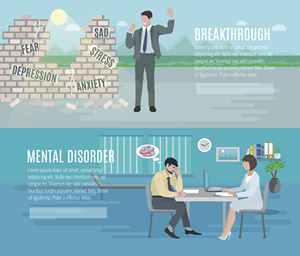ATD Blog
Is Job Burnout Simply a Sign of the Times?
Wed Sep 02 2015

We work in a time when job burnout is common. In fact, according to The American Institute of Stress, nearly half of all American workers suffer from symptoms of burnout.
I am an expert on job burnout—self-taught and well-practiced. More than once, I worked so hard at a job I loved that ultimately I didn’t love it at all. I allowed myself to be consumed by my work. Even when I wasn’t at work, I was working. And I was at work a lot. I took work home. I went in early and stayed late. I worked through lunchtime. I went in on weekends and holidays and vacations.
Eventually I was exhausted. I lost my edge. I lost confidence in my ability to do my job, so I felt I had to work all the time just to try to keep up. I was stressed. I was irritable. I had what seemed to be continual headaches and stomach aches. I was burned out.
What is job burnout? The Mayo Clinic explains job burnout as “a state of physical, emotional or mental exhaustion combined with doubts about your competence and the value of your work.”
Symptoms of burnout as listed in Psychology Today include:
• chronic fatigue
• insomnia
• forgetfulness/impaired concentration and attention
• physical symptoms that may include chest pain, heart palpitations, shortness of breath, gastrointestinal pain, dizziness, fainting, and headaches
• increased illness
• loss of appetite
• anxiety
• depression
• anger
• cynicism and detachment
• loss of enjoyment in work but also in life outside work
• ineffectiveness and lack of accomplishment.
What causes these symptoms? What causes burnout? Several factors get credit.
• Pressure. Sometime pressure is a factor of the amount of work a person is expected to do, in what may be too short a time period. Other times, as in my situation, the pressure is self-imposed. A person dedicates extensive time to work, at the expense of family and friends and other important aspects of life, because she just really loves her work. She wants to be working.
• Bosses. Working for a demanding, insensitive, controlling boss can be a big factor in burnout. Another related factor contributing to burnout is having minimal control on the job. What you do, when you do it, and how you do it is determined by someone else, generally your boss.
• Co-workers. The other people you work with may contribute to your job burnout. You may not get along. You may not like them; they may not like you. The result may be conflict in your workplace. If you’re a person with little tolerance for conflict, and are in a situation in which you are expected to deal effectively with conflict, job burnout may definitely be a result.
• Change. We all know change can be stressful. Sometimes too much happens too fast. Ongoing change or excessive change in a short period of time can be a factor in job burnout.
• Threats. We live in a time of turnover, management changes, buyouts, mergers and takeovers. All those things bring with them the threat of losing a job. And, the threat of working for someone new and different—and unknown.
• Lack of Meaning in Your Work. The feeling your work isn’t important, or that anyone could do your job, can be a factor contributing to job burnout. Another spin on this is knowing the end result of your work is important, but feeling nonetheless that what you yourself do isn’t important.
How to Prevent or Recover from Burnout
Looking back, I realize I could have prevented my job burnout. What could I have done? If you’re in a similar situation, what can you do? Here are four good ways to avoid burnout.
1. Socialize. Spend time with family and friends. Make sure this includes friends away from work, not just co-workers.
2. Develop other interests. Take up a hobby. Go to the movies. Read a book. Make jewelry. Learn archery. The possibilities are endless.
3. Exercise. Join a gym. Take up running or walking. Here’s an idea: take a walk during your lunch hour.
4. Chill. Learn to relax. Do yoga, Get a massage. Meditate. Practice deep breathing or mindfulness techniques.
Job burnout isn’t a personal problem that affects only the individual. It’s not enough for an employer to tell an employee to “get over it.” In fact, job stress costs U.S. industry $300 billion annually, according to The American Institute of Stress, which defines burnout as "a disabling reaction to stress on the job" and measures absenteeism, decreased productivity, employee turnover, and direct medical, legal, and insurance fees.
A change of attitude is in order—for individuals and for organizations. Job burnout is negatively impacting our lives and our pocketbooks. Perhaps that change of attitude can begin with you as you become an example of a healthy commitment to one’s work. No doubt work is very important in our lives, but our lives don’t have to be all about work. Think about it…
For more help on avoiding burnout and succeeding in your career, check out the TD at Work Career Management Collection. For instance, what strategies can you use to begin to fill gaps that you might have in your professional portfolio? Or, how can you assess what you have to offer employers, and better manage work-life balance? This 2015 TD at Work collection will guide you through answering these questions, help you showcase your professional skills, and align your personality and interests with your career.
You've Reached ATD Member-only Content
Become an ATD member to continue
Already a member?Sign In
